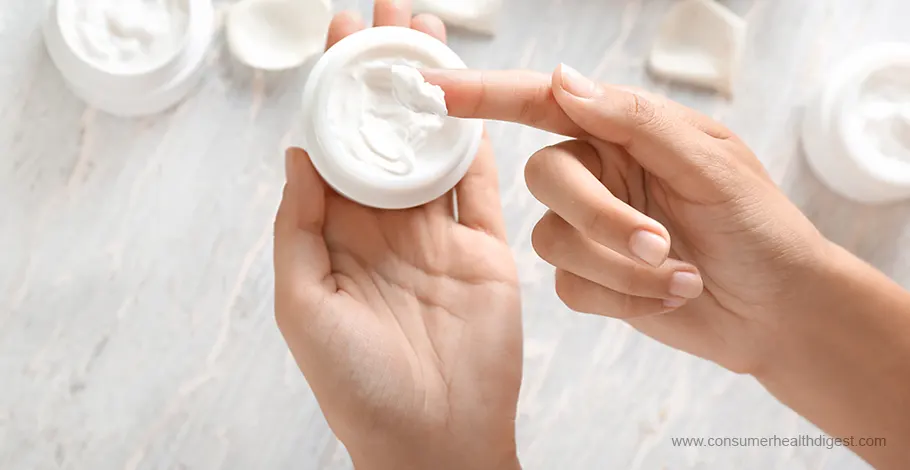In the quest for radiant, youthful skin amidst the challenges posed by harsh winter conditions and the relentless pursuit of health, the question, “Which Type of Moisturizer Is Best for Your Skin?” becomes more than just a matter of cosmetic preference—it transforms into a strategic decision critical for maintaining skin health.

Guided by insights from board-certified dermatologists and validated by the latest skin care research, this manual seeks to demystify the myriad of moisturizing options available. By acknowledging the unique demands of different skin types and the vital role of moisturizers in sustaining the skin’s natural barrier, we equip you with the knowledge to make informed choices that propel you toward achieving a dewy, glowing complexion.
Trust in science and authority to guide you through the decision-making process, ensuring that your skin receives the optimum care it deserves.
Understanding Your Skin Type
Choosing the best moisturizer for your skin begins with a clear understanding of your skin type. Each skin type has specific needs that can dramatically influence the effectiveness of your moisturizing routine. Here’s a closer look:
- Normal Skin: Characterized by a well-balanced level of moisture, minimal sensitivity, and few imperfections. If you have this skin type, you’re in luck—the majority of moisturizers will complement your skin, although lightweight lotions are particularly effective.
- Oily Skin: Marked by an increased amount of sebum production, resulting in a shiny appearance and larger pores. Opt for water-based or gel moisturizers that hydrate your skin without adding extra oil.
- Dry Skin: Feels tight and can show signs of flaking or rough patches due to a lack of moisture. Look for heavier, cream-based moisturizers that provide deep hydration and lock in moisture.
- Combination Skin: Exhibits characteristics of both oily and dry skin, with oiliness generally around the T-zone and dryness on the cheeks. Using a light moisturizer that balances hydration without exacerbating oiliness is key.
- Sensitive Skin: Reacts easily to certain ingredients and environmental factors, leading to redness, itching, or rashes. Hypoallergenic and fragrance-free moisturizers that contain soothing ingredients like aloe or chamomile are best.
Understanding your skin type is not just about applying the right product; it’s about making a decision that impacts your skin’s health and appearance. Transitioning from a generic skincare routine to one tailored to your specific needs can significantly enhance your skin’s condition. [1]
Regular consultations with a dermatologist and paying close attention to how your skin reacts to different products are crucial steps in identifying the most suitable moisturizer. Remember, the goal is to nourish your skin in a way that supports its natural balance, promoting a healthy, radiant complexion.
Types of Moisturizers
Navigating through the array of moisturizers on the market can feel overwhelming, but understanding the primary categories and their unique benefits demystifies the process, leading to smarter, skin-friendly choices.
- Humectants: These are your skin’s hydration heroes. Ingredients like glycerin and hyaluronic acid work by drawing moisture from the air into the skin, a process that is particularly beneficial for those with dry or dehydrated skin. By promoting a plump and dewy complexion, humectants address the visible signs of dryness and aging, making your skin appear more youthful and radiant. [2]
- Emollients: Think of emollients as your skin’s smoothing agents. They fill in the gaps and cracks in the skin, leaving it soft, smooth, and supple. Common emollients include natural oils and butters, such as jojoba oil, coconut oil, shea butter, and cocoa butter. Perfect for dry and sensitive skin types, emollients not only improve texture but also reinforce the skin’s barrier, enhancing its resilience against irritants.
- Occlusives: These are the heavy-duty protectors. Occlusives, like petrolatum and dimethicone, create a physical barrier on the surface of the skin to lock in moisture and prevent water loss. Occlusives are most beneficial for extremely dry or compromised skin, providing essential protection against harsh environmental factors and aiding in the skin’s natural healing process. [3]
- Combination Moisturizers: Why choose one when you can have the best of all worlds? Combination moisturizers fuse humectants, emollients, and sometimes occlusives to offer a multifaceted approach to skin hydration. They are particularly adept at addressing multiple skin concerns simultaneously, such as dryness, dullness, and the first signs of aging, making them a versatile addition to any skincare regimen. [4]
By tailoring your choice of moisturizer to your skin’s specific needs, you strike a fine balance between nourishment and protection. It’s not just about quenching your skin’s thirst; it’s about choosing a formula that complements your skin type and lifestyle, safeguarding your skin’s health and enhancing its natural beauty.
Choosing the Right Moisturizer for Your Skin

How to Pick the Right Moisturizer for Your Skin? Shutterstock Image
Choosing the right moisturizer for your skin can seem like navigating a labyrinth, but it doesn’t have to be. Understanding “Which Type of Moisturizer Is Best for Your Skin” boils down to a few crucial considerations. Here’s how to simplify the process:
- Skin Type: Your skin’s needs are as unique as you are. Dry skin may revel in rich, oil-based creams, while oily skin might prefer lightweight, water-based products that hydrate without clogging pores.
- Ingredients: Look for proven hydrators like glycerin or hyaluronic acid for deep moisture. If you’re navigating sensitive skin, steer clear of alcohols and fragrances, and veer towards soothing components like ceramides. [5]
- Climate Adaptability: Your environment plays a crucial role. In dry climates, your skin will thank you for choosing heavier, occlusive-rich moisturizers, whereas humid conditions call for something lighter.
- Sensitivities: Avoid potential irritants by opting for products that proudly state they are fragrance-free or hypoallergenic, especially if your skin tends to react easily.
Remember, finding the perfect moisturizer might involve some trial and error. Patch testing new products on a small area of your arm before applying them to your face is crucial. Observe your skin’s reaction and adjust your choice accordingly.
Tips for Optimal Moisturizer Application
For optimal results in your skincare regimen, integrating the best moisturizer application techniques is key. Here are expert tips to maximize efficacy:
- Cleanse First: Begin with a clean canvas. Use a gentle cleanser suited to your skin type to remove impurities, ensuring your skin is ready to absorb moisture fully.
- Apply to Damp Skin: Leveraging slightly damp skin can significantly enhance moisturizer absorption. After cleansing, pat your skin until it’s just damp, then apply your moisturizer to seal in the hydration.
- Use Gentle, Upward Motions: The application technique matters. Spread the moisturizer using soft, upward strokes. This approach is gentle on your skin and aids in promoting a youthful appearance.
By conscientiously selecting the best moisturizer for your unique skin needs and adhering to these application tips, you’re laying the foundation for a radiant, healthy complexion. Remember, a consistent skincare routine, complemented by a healthy lifestyle, paves the way for lasting skin health and vitality.
Conclusion
Choosing the right moisturizer is crucial for achieving healthy, radiant skin. By understanding your skin type, exploring different options, and following application tips, you can find the perfect match for your individual needs. Remember, experimenting is key, so don’t hesitate to try different products until you discover the one that keeps your skin feeling its best.
5 Sources
We review published medical research in respected scientific journals to arrive at our conclusions about a product or health topic. This ensures the highest standard of scientific accuracy.
[2] "Why Dermatologists Say Your Winter Skin Care Routine Should Include Humectants." Bustle, 6 Mar. 2024, www.bustle.com/beauty/humectants-for-skin.
[3] Fisher, Margaret. "How to Soften Dry, Callused Feet." Skincare, 19 July 2022, www.skincare.com/expert-advice/all-expert-advice/what-is-occlusive-skin-care-product-ingredient.
[4] Spada F, Barnes TM, Greive KA. Skin hydration is significantly increased by a cream formulated to mimic the skin's own natural moisturizing systems. Clin Cosmet Investig Dermatol. 2018 Oct 15;11:491-497. doi: 10.2147/CCID.S177697. PMID: 30410378; PMCID: PMC6197824.
[5] "The hype on hyaluronic acid - Harvard Health." Harvard Health, 23 Jan. 2020, www.health.harvard.edu/blog/the-hype-on-hyaluronic-acid-2020012318653.








 This article changed my life!
This article changed my life! This article was informative.
This article was informative. I have a medical question.
I have a medical question.
 This article contains incorrect information.
This article contains incorrect information. This article doesn’t have the information I’m looking for.
This article doesn’t have the information I’m looking for.